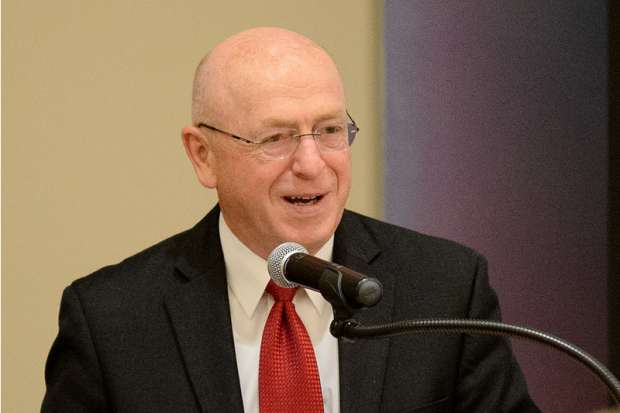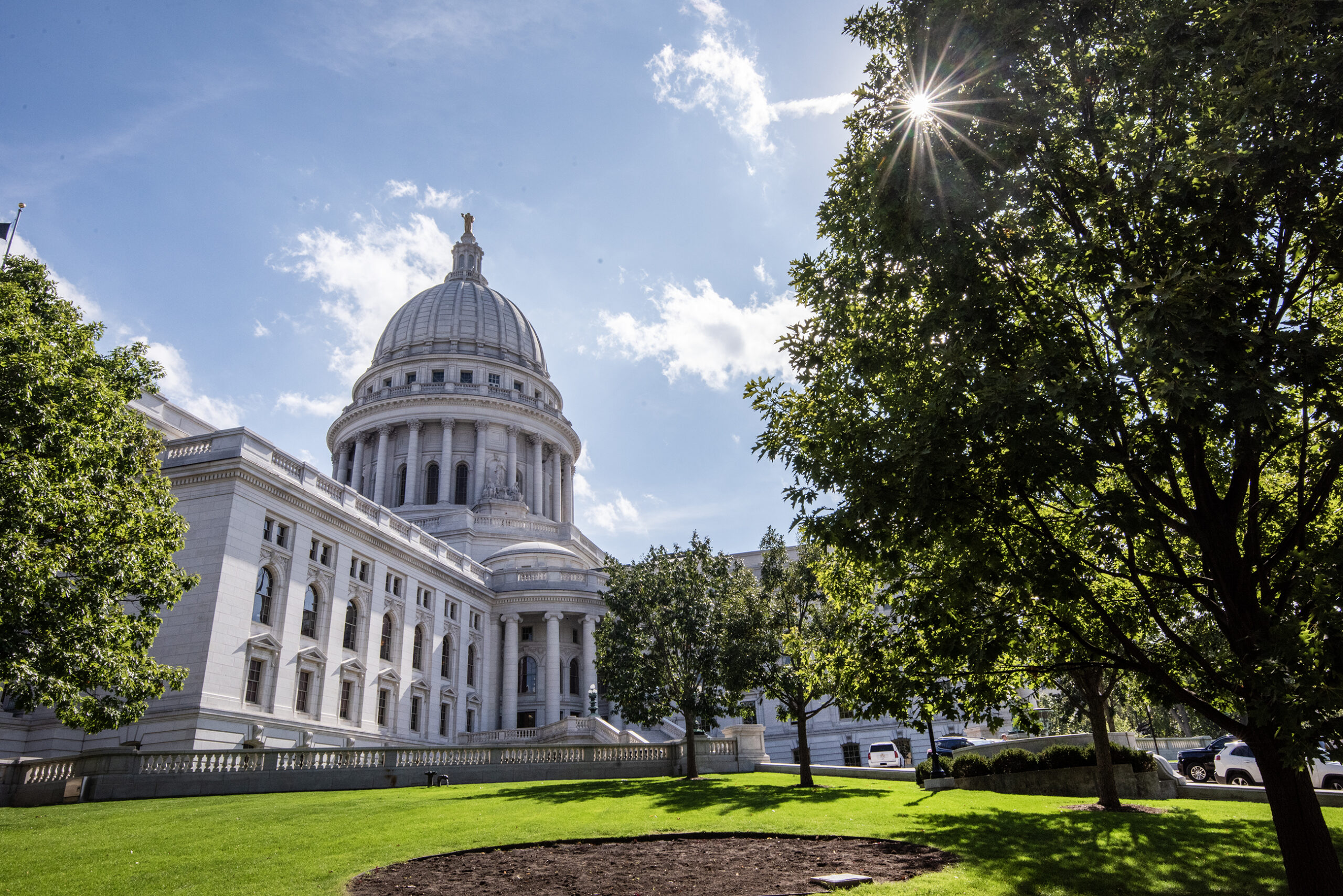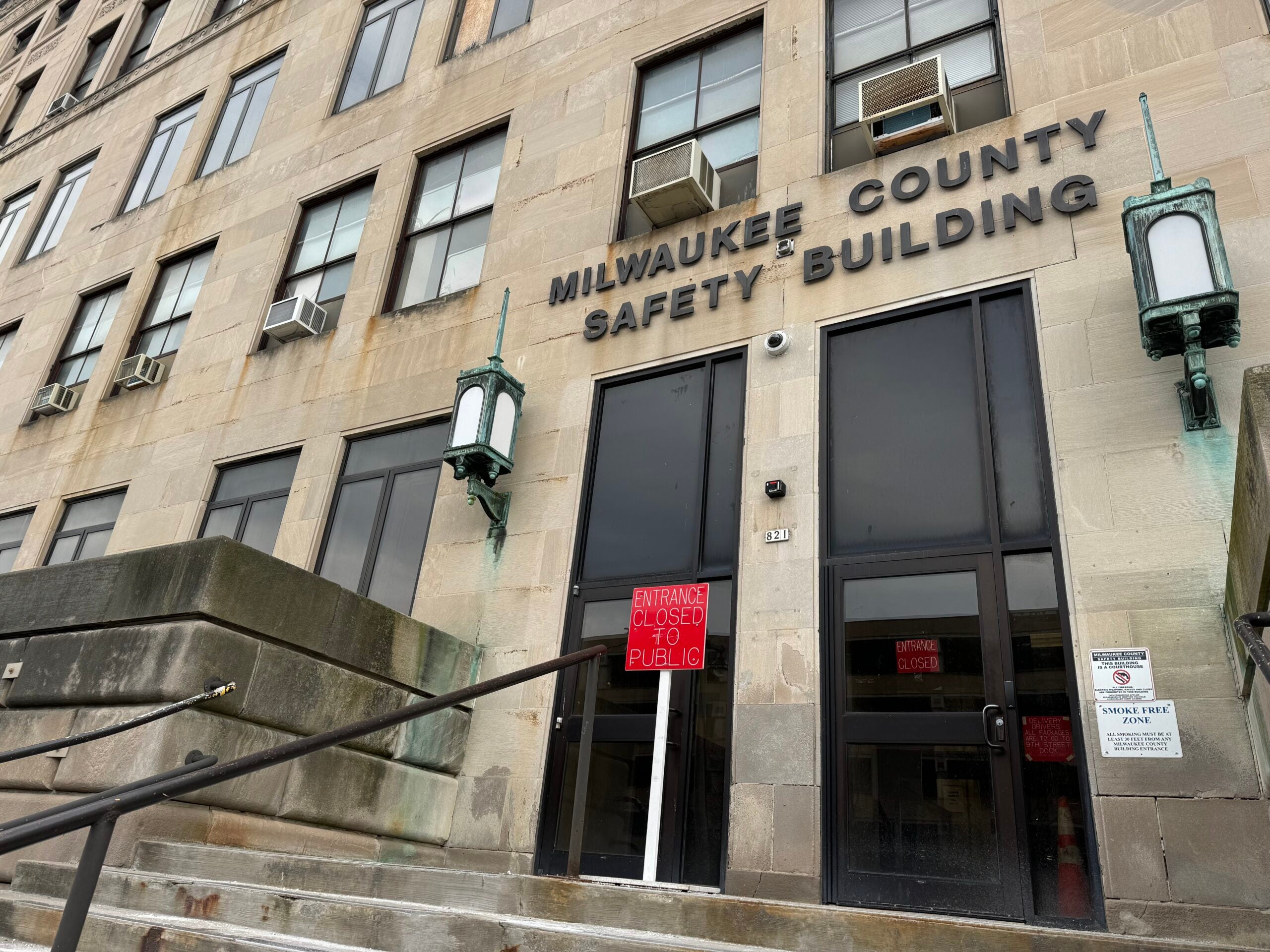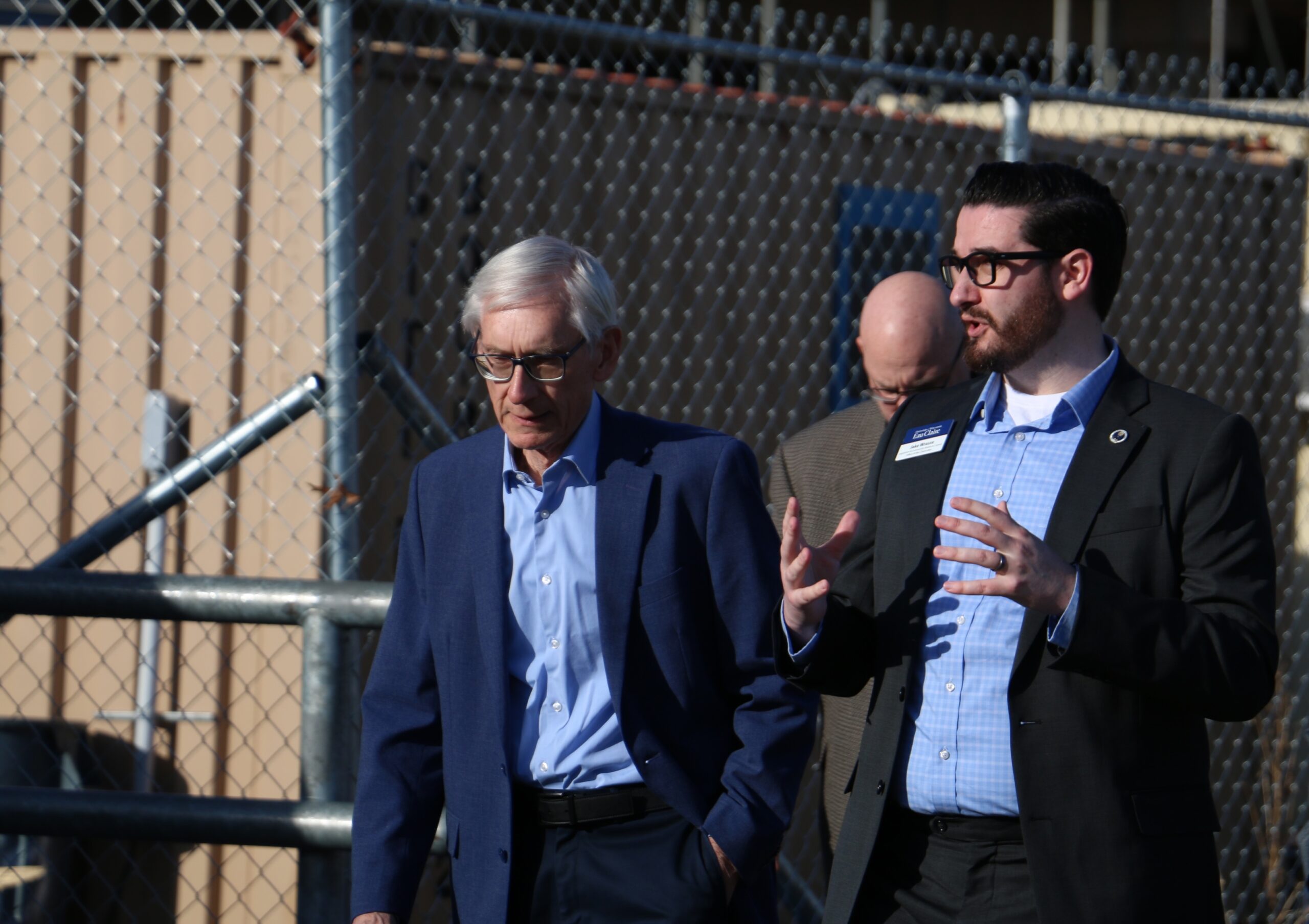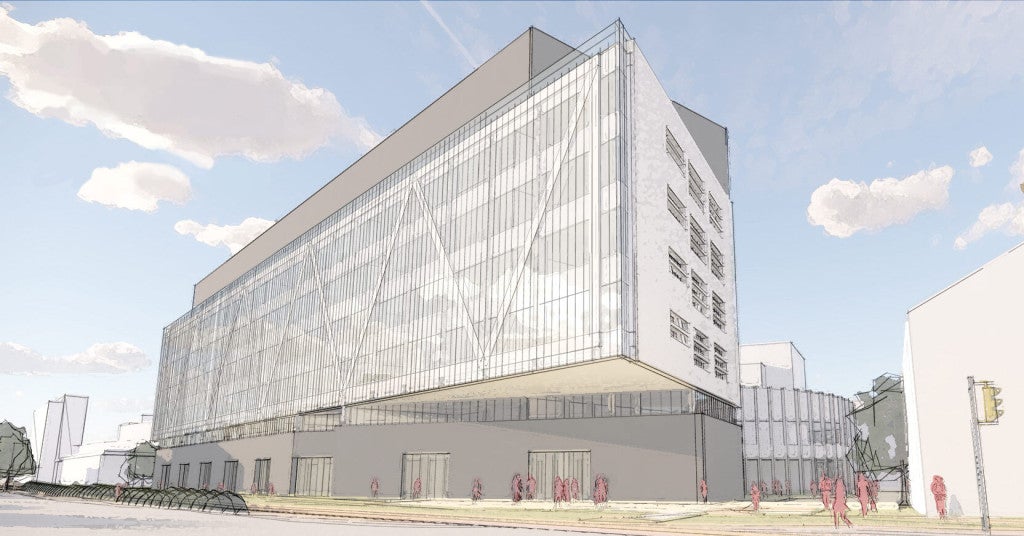University of Wisconsin System President Ray Cross says university officials will continue to push state lawmakers for investment in campus buildings despite the State Building Commission rejecting $2.5 billion in state renovation projects around Wisconsin.
Cross gave a presentation on Friday to the UW Board of Regents in Madison that included updates on the state budget process.
He thanked Gov. Tony Evers for his two-year budget proposal that included an additional $150 million for the UW System and for recommending $2.5 billion in bonding authority and state revenues in his capital budget.
Stay informed on the latest news
Sign up for WPR’s email newsletter.
Evers’ capital budget plan had more than $109 million for 82 state building projects, including a new science hall at UW-Eau Claire and $130 million for a new chemistry building at UW-Milwaukee.
“The State Building Commission did not forward a formal recommendation,” Cross told the regents. “However, legislators from both parties and the governor’s office have indicated they understand the risk of not investing in our infrastructure and the cost of further delaying critical renovation, remodeling and replacement projects.”
State Rep. Rob Swearingen, R-Rhinelander, is vice chairman of the the State Building Commission.
“First of all, it’s not the end of the world,” Swearingen told WPR in an interview Friday. “These projects can still move forward with the approval of the Joint Finance Committee.”
Swearingen said members of the building commission were presented with Evers’ capital budget 10 days before they were set to vote on it and the level of borrowing was higher than Republicans were willing to accept.
“The Assembly Republican caucus — and I can’t speak for the (state) Senate, although I think they’re in the same position — had some serious heartburn with a capital budget that puts $2 billion more on the state’s credit card,” Swearingen said.
He said the eight members of the commission were deadlocked on Evers’ request.
“So, I made the motion to move the entire capital budget, the entire $2.6 billion on to Joint Finance and the Democrats led by Gov. Evers said ‘no,’” Swearingen said. “So, ultimately there were about 82 projects that got shot down individually. A lot of projects, of course, we support.”
State Rep. Jill Billings, D-La Crosse, who is a State Building Commission member, told WPR the impasse on the capital budget and sending it on without recommendations isn’t what voters elected lawmakers to do.
“The problem is that we just sent everything on to Joint Finance and I felt like we could have done better due diligence on our work,” Billings said.
Billings said Evers presenting his capital budget to the commission 10 days before their scheduled vote isn’t out of the ordinary and members already knew about many of the requests from campuses.
“A lot of these projects have been in the queue for years,” Billings said. “It’s not like these projects appeared out of nowhere.”
As for Republicans’ concern about borrowing $2 billion for the 82 renovation and replacement projects, Billings said she can understand that. But she said the request is addressing a lack of renovations in past years.
“This was a capital budget that came from Gov. Evers that really, I felt, addressed the needs of this state with our 6,700 facilities and so many projects that had been deferred for the last eight or more years,” Billings said.
Billings, Evers and even chancellors from some campuses have voiced concerns that lawmakers’ decision to pull back support for building projects could cause uncertainty among private donors.
Cross said he and other administrators will continue working with lawmakers to secure investment in UW buildings around the state.
Cross Responds To President Trump Executive Order On Free Speech
Cross told regents he and a delegation of UW System officials traveled to Washington, D.C., to lobby Congress to index the federal Pell Grant program for low-income families to inflation and to simplify federal financial aid forms submitted by hopeful students.
Cross also mentioned a recent executive order from President Donald Trump that directed agencies receiving federal grant money to comply with existing federal laws related to free speech on Congress. Trump’s order comes amid concerns from conservatives who have claimed campuses are hostile to conservative speakers.
Cross brought up a Board of Regents resolution passed in 2017 that allows chancellors to expel students who repeatedly disrupt freedom of speech or freedom of expression on campuses.
“The purpose of that policy was and is to communicate the board’s commitment to academic freedom,” Cross said. “In other words, I believe our efforts and the action this board took back then have actually preceded the proposed action by the president. So, we are well within the expected guidelines.”
That vote drew controversy and complaints from students and faculty that the regents resolution would have the opposite effect on speech. At the time, some students said the policy could actually embolden organizations or speakers advocating hate speech to seek confrontations on campuses in Wisconsin.
Billings said free speech is a complicated issue for campuses. She supports students’ rights to express their opinions if a speaker they disagree with is coming to campus, though she doesn’t support groups or individuals who shout down opposing viewpoints.
“The problem is you have to make sure, I want to make sure, that students are also not punished for expressing their opinions,” she said. “So, I think that if they have problems with someone who’s speaking on campus, they should be able to voice that.”
Wisconsin Public Radio, © Copyright 2025, Board of Regents of the University of Wisconsin System and Wisconsin Educational Communications Board.
